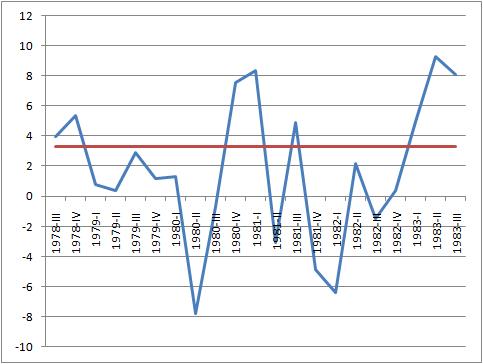|
Archie McCardell
Archie R. McCardell (August 29, 1926 – July 10, 2008) was an American business leader. He was best known for his tenure as chief executive officer, president, and chairman of the board at the International Harvester farm and heavy equipment manufacturing concern from 1977 to 1982.Ring, "McCardell's Reign as IH Boss Wasn't Dull," ''Quad Cities Dispatch,'' July 16, 2008. Although Harvester was the nation's fourth-largest company at the time he assumed control,Zimmerman, ''The Turnaround Experience: Real-World Lessons in Revitalizing Corporations,'' 1991. McCardell triggered a strike by unionized employees which ended disastrously for the company and led to its eventual demise."Goodbye, Archie," ''Time'', May 17, 1982.Loomis, "The Strike That Rained on Archie McCardell's Parade," ''Fortune'', May 19, 1980. Early life Archie McCardell was born in Hazel Park, Michigan in August 1926.Martin, "Archie McCardell, Harvester Chief Who Clashed With Union, Dies at 81," ''The New York Ti ... [...More Info...] [...Related Items...] OR: [Wikipedia] [Google] [Baidu] |
Hazel Park, Michigan
Hazel Park is a city in Oakland County in the U.S. state of Michigan. As a part of Metro Detroit, the city shares its southern border with the city of Detroit. As of the 2010 census, the population was 16,422. Hazel Park was incorporated as a city in 1941 and bills itself as ''The Friendly City''. From 1949 to 2018, it was the site of the Hazel Park Raceway, considered a high-quality facility originally used for both Thoroughbred and Standardbred racing. From 1985 on, the track ran only harness races. After 1996, it also provided simulcasts of races year round from across North America, with betting allowed on these races at the track facilities. History This area was long occupied by indigenous peoples, with such historic and current tribes as the Potawatomi and others known to European fur traders and colonists from the 17th century. In the later 19th century, as westward migration increased from the eastern United States to the Great Lakes territories, this area was settl ... [...More Info...] [...Related Items...] OR: [Wikipedia] [Google] [Baidu] |
West Germany
West Germany is the colloquial term used to indicate the Federal Republic of Germany (FRG; german: Bundesrepublik Deutschland , BRD) between its formation on 23 May 1949 and the German reunification through the accession of East Germany on 3 October 1990. During the Cold War, the western portion of Germany and the associated territory of West Berlin were parts of the Western Bloc. West Germany was formed as a political entity during the Allied occupation of Germany after World War II, established from eleven states of Germany, states formed in the three Allied zones of occupation held by the United States, the United Kingdom, and France. The FRG's provisional capital was the city of Bonn, and the Cold War era country is retrospectively designated as the Bonn Republic. At the onset of the Cold War, Europe was divided between the Western and Eastern Bloc, Eastern blocs. Germany was divided into the two countries. Initially, West Germany claimed an exclusive mandate for all of Ger ... [...More Info...] [...Related Items...] OR: [Wikipedia] [Google] [Baidu] |
Early 1980s Recession
The early 1980s recession was a severe economic recession that affected much of the world between approximately the start of 1980 and 1983. It is widely considered to have been the most severe recession since World War II. A key event leading to the recession was the 1979 energy crisis, mostly caused by the Iranian Revolution which caused a disruption to the global oil supply, which saw oil prices rising sharply in 1979 and early 1980. The sharp rise in oil prices pushed the already high rates of inflation in several major advanced countries to new double-digit highs, with countries such as the United States, Canada, West Germany, Italy, the United Kingdom and Japan tightening their monetary policies by increasing interest rates in order to control the inflation. These G7 countries each, in fact, had "double-dip" recessions involving short declines in economic output in parts of 1980 followed by a short period of expansion, in turn, followed by a steeper, longer period of economic ... [...More Info...] [...Related Items...] OR: [Wikipedia] [Google] [Baidu] |
International Harvester Strike Of 1979–1980
The International Harvester strike of 1979–1980 was a strike by the United Auto Workers (UAW) against the International Harvester (IH) company over work rules. The strike began on November 1, 1979,Flamholtz and Randle, ''Changing the Game: Organizational Transformations of the First, Second, and Third Kinds,'' 1998. and ended after 172 days on April 20, 1980.Ring, "McCardell's Reign as IH Boss Wasn't Dull," ''Quad Cities Dispatch,'' July 16, 2008. As of May 2008, it was the fourth-longest strike of national importance ever held by the UAW. Background Previous bargaining history The UAW first negotiated a master contract with International Harvester in 1950. At the time, there was no mandatory overtime and both management and the union believed that the company could not request mandatory overtime.Loomis, "The Strike That Rained on Archie McCardell's Parade," ''Fortune,'' May 19, 1980. The 1950 master contract also codified an existing practice whereby a worker could transfer t ... [...More Info...] [...Related Items...] OR: [Wikipedia] [Google] [Baidu] |
.jpg)

